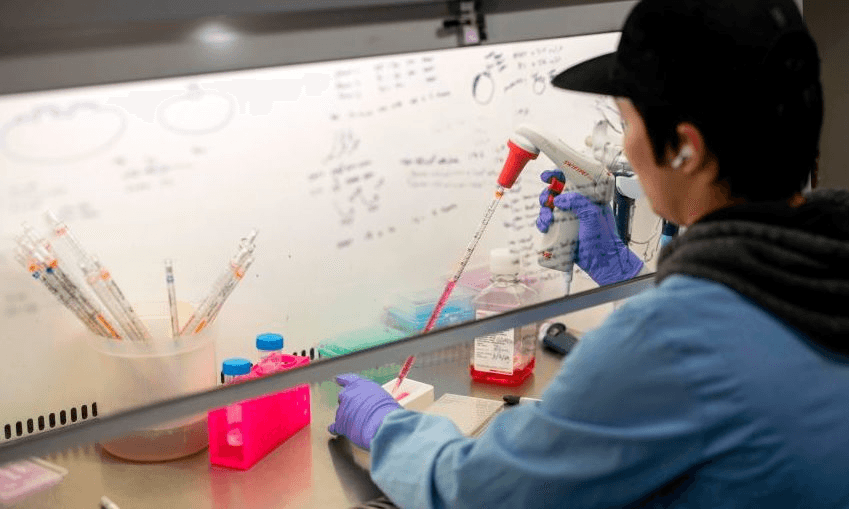Yesterday New Zealand confirmed the first known case of Covid-19 in the country. As the virus approaches global pandemic status, what progress is being made in developing a vaccine? Siouxsie Wiles explains where we’re at, and how the vaccines work.
The race to find a vaccine for Covid-19 is under way, and it’s taking place at breakneck speed.
In January, the head of the US National Institute of Allergy and Infectious Diseases, Dr Anthony Fauci, announced they were partnering with a small biotech pharmaceutical company to work on a vaccine against the new coronavirus responsible for Covid-19.
That company, Moderna, has just announced they’ve shipped the first 100 vials of a vaccine called mRNA-1273 to the institute for Phase 1 human trials. The teams involved have clearly been working at great pace – it’s taken just 42 days to get from selecting a suitable candidate to producing a batch suitable for clinical trials.
During the Phase 1 trials, the vaccine will be tested in a small number of people to see how they respond to it and if it’s likely to be safe. If it passes this hurdle, then it can move to Phase 2 trials to test if it’s able to actually protect us against the Covid-19 virus, SARS-CoV-2.
Moderna specialises in developing messenger RNA (mRNA) therapies and vaccines and currently has several vaccines in Phase 1 trials, and one in Phase 2.
Conventional vaccines work by exposing our bodies to either inactivated disease-causing organisms or their proteins (called antigens). These stimulate our immune cells, priming our immune response so it can rapidly take action when we are exposed to the real deal.
RNA vaccines work by exposing us to the genetic code (mRNA) for specific antigens instead of using the proteins. In our cells, the mRNA is used to make the protein, which then stimulates our immune response just like a conventional vaccine. The advantages of RNA vaccines are that they are much faster, safer, and cheaper to produce.*
Hot on Moderna’s heels, a team of researchers at the University of Queensland have announced they’ve reached a milestone in their attempts to make a Covid-19 vaccine. They’re using a different approach which they call “molecular clamp” technology. Enveloped viruses, like the coronaviruses, infect host cells after the virus fuses with the cell’s membrane.
To make this happen the viral proteins rearrange from what’s known as a “pre-fusion” to a “post-fusion” form. For vaccines, the pre-fusion proteins are best, and this molecular clamp technology is a way of engineering proteins that mimic their pre-fusion state. The team in Australia has made a vaccine candidate they think should be recognised by our immune systems. The next stage is to produce the vaccine in larger amounts to start animal and safety testing.
While these developments are really exciting, we shouldn’t get ahead of ourselves. It will be several months before we know whether either of the vaccines is safe and effective. In the meantime, I’d recommend you stay calm and start preparing yourself.
* That’s not stopped US Health and Human Services Secretary Alex Azar (a former drug company executive and pharmaceutical lobbyist) from saying there is no guarantee a vaccine would be made affordable to everyone who needs it…

